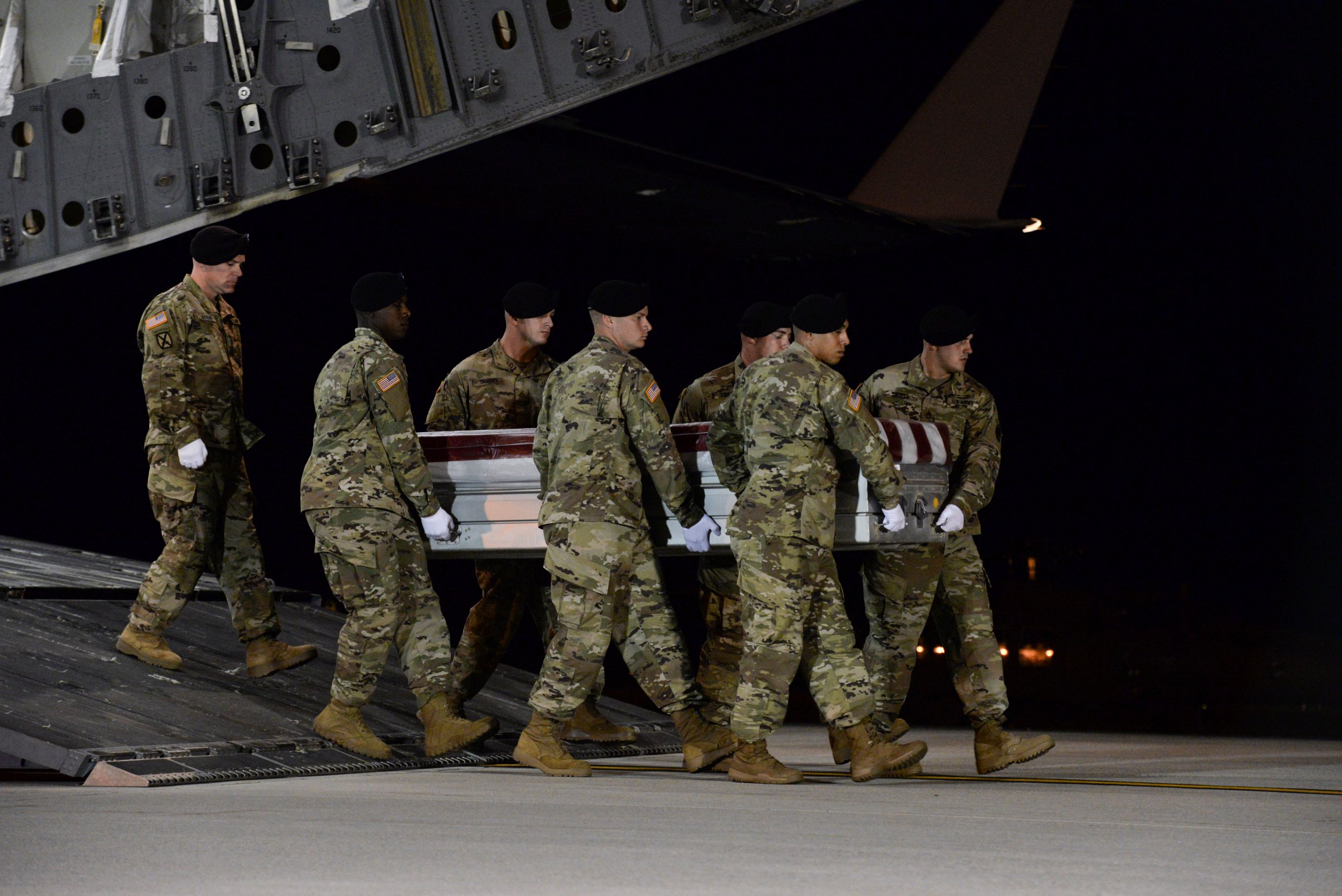
U.S. officials are investigating new video footage of militants in Niger from around the time of an ambush that killed four U.S. soldiers. The investigation will look for indications of who may have been involved in the assault, which is suspected to have been carried out by Islamist militants.
On October 4, as many as 50 Islamists the U.S. says are aligned with the Islamic State militant group (ISIS) attacked a joint U.S.-Nigerien patrol that was visiting the village of Tongo Tongo, near the Malian border, to speak with elders.
As the soldiers left in unarmored vehicles, jihadis opened fire with small arms and rocket-propelled grenades. The soldiers returned fire and retreated a mile from the scene before they encountered a second ambush, which killed four U.S. Army Special Forces, two of them Green Berets.
New footage released to ABC News by retired Lieutenant Colonel Rudolph Atallah, a former U.S. military official in West Africa, shows armed men with motorbikes near the site of the attack. It is unclear what the affiliation of the men is, but Atallah said the footage was shot by Abu Walid, the leader of a local group aligned with ISIS.
JUST IN: U.S. intel officials examining video showing militant group in Niger for clues related to deadly ambush. https://t.co/HQHEX3DNFz pic.twitter.com/Xj2uFdH8Ie
— ABC News (@ABC) October 24, 2017
"It says if we capture them what are we going to do with them. One of them says we'll decapitate them, another guy says we'll fight them with weapons," Atallah said, suggesting that the men in the video knew that they were about to launch an attack on high-value targets.
The military is increasingly focusing on the theory that the special forces unit was ambushed by an ISIS affiliate that was tipped off before the patrol reached the village. Local officials and U.S. officials have suggested that the village is sympathetic to ISIS and may have helped the militants.
Almou Hassane, the mayor of the village in question, Tongo Tongo, told Voice of America that "the attackers, the bandits, the terrorists have never lacked accomplices among local populations." Nigerien authorities have now detained the chief of the village, Mounkaila Alassane.
The affiliate suspected of carrying out the attack is the Islamic State in the Greater Sahara (ISGS), a relatively new and local branch of ISIS that has conducted several small attacks in the region, particularly in Burkina Faso, which neighbors Niger. The jihadi affiliate swore its allegiance to ISIS and the group accepted its bayah, or pledge, in October 2016.
Al-Qaeda's affiliates—Al-Qaeda in the Islamic Maghreb, Ansar Dine and Al-Mourabitoun—are also active in the lawless Sahel region, where trafficking and militant activity is allowed to thrive.
Details about the assault have remained unclear three weeks since, but it was claimed on Tuesday that the patrol was pursuing a senior ISIS militant recruiter.
The U.S. military is continuing its investigation into the incident amid criticism from top lawmakers, including Senator John McCain, who has threatened to "subpoena" the Trump administration to obtain more information about the events that led to the attack, which he believes are being withheld.
On Monday, General Joseph Dunford, chairman of the Joint Chiefs of Staff, said the military would find out what led to the soldiers' deaths on October 4—if not for the public, then for those who have lost their loved ones.
"We owe you more information. More importantly, we owe the families of the fallen more information," Dunford said. "Did the mission change? It's a fair question."
Uncommon Knowledge
Newsweek is committed to challenging conventional wisdom and finding connections in the search for common ground.
Newsweek is committed to challenging conventional wisdom and finding connections in the search for common ground.
About the writer
Jack is International Security and Terrorism Correspondent for Newsweek.
Email: j.moore@newsweek.com
Encrypted email: jfxm@protonmail.com
Available on Whatsapp, Signal, Wickr, Telegram, Viber.
Twitter: @JFXM
Instagram: Read more
To read how Newsweek uses AI as a newsroom tool, Click here.








